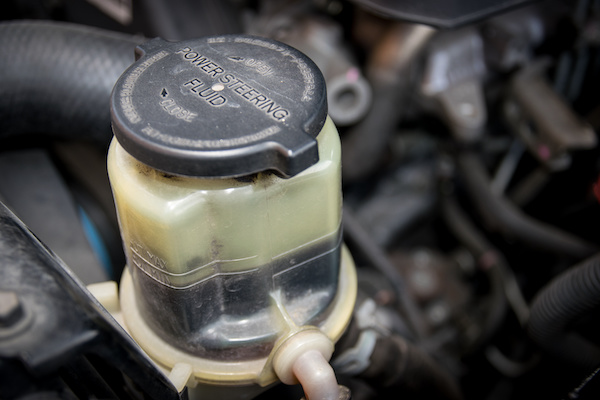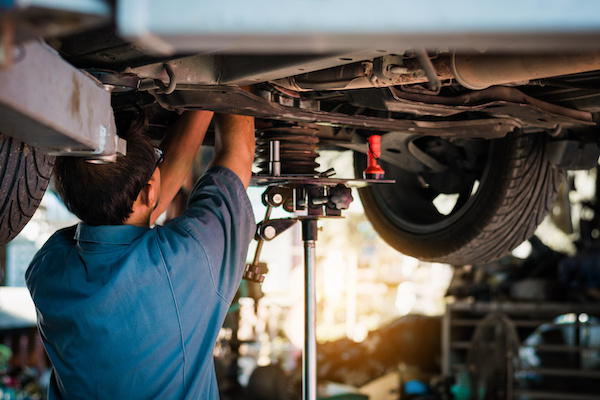Posted on 7/26/2022

When you discover that your vehicle needs a power steering flush, you might be tempted to put it off. So, is it really required to change the power steering fluid? The simple answer is yes—regular power steering flushes are necessary to safeguard your car and keep you and other road users safe. Let's look more closely: Observing Symptoms If you experience any of the symptoms mentioned below, you urgently need to schedule a power steering fluid flush to ensure the safety of both you and your car as well as other road users. Lack of symptoms What happens if you need to cleanse your power steering fluid on a regular basis but haven't yet observed any symptoms? This treatment is still required to stop the emergence of risky or bothersome symptoms. Additionally, it can aid with power steering system protection. Without enough fluid, your power steering pump, for instance, may start to degrade, turning a straightforward maintenance flush into an expensive repair. Visits to ... read more
Posted on 6/30/2022
.jpeg)
Most people don't use the terms "driveline" and "drivetrain" often, unless they are a mechanic. However, that doesn't mean these services aren't important. If you want to keep your car or truck going, you may need driveline and drivetrain service. The driveline, also referred to as the drivetrain, consists of all the components involved in transferring the power between the transmission and wheels. With such an important role, you can only get so far with a damaged driveline. Where does it all start? First of all, the engine is the start of most things in your car, and it creates power. That power gets transferred to and altered by the transmission to deliver the right movement to your wheels. The primary component in the driveline is the driveshaft, and it is a long metal tube that connects the transmission at one end and the wheels at the other. Symptoms That Indicate You Need Driveline/Drivetrain Service A ... read more
Posted on 5/28/2022

Road trips can be fun, but they can be even better when you bring your pets along for the ride. If you do decide on bringing your furry friend on the road, there are some safety precautions you may need to take. Pets can be restless and behave poorly when confined in a small space, such as jumping and hanging out the window. Here are some tips to keep your pet well-behaved so that the whole car can have fun: Take Little Trips Before Before your big getaway, take your cat or dog for a spin to make them feel comfortable in your car. That way, you can get a feel of whether they get stressed or anxious. Pack Your Pets' Essentials As you pack your bag with your toiletries, clothes, and other essentials, don't forget to pack your pet's things too. They'll need their food and water, treats, grooming supplies, treats, and even toys. Take a Trip to the Vet Before going on an extensive road adventure, it is important to take your pet to the vet to see whet ... read more
Posted on 4/27/2022

Car odors can be scary and embarrassing, but it's important to know how they're created. Smells like rotten eggs are caused by small leaks in the exhaust system that can lead to the release of fumes into your car. These fumes combine with moisture from your air conditioning, resulting in a musty smell that is especially nauseating during the summer months. If you find this smell getting stronger or more persistent in your car, it may be time for an overhaul. A sulfur smell in your car can be caused by a gas leak. We know your car may have a sulfur smell, but you can also get this odor from a leaking gas tank. In addition to the sulfur smell, you might also notice that your car runs hot after filling up with gas. You might want to replace your fuel filter when that happens because it could be allowing harmful gases into the engine. Failing catalytic converters will cause your car to have a rotten egg smell. Failing catalytic converters can cause a distinct smell from your ca ... read more
Posted on 3/23/2022
.jpeg)
There's no doubt that your brakes are your car's most crucial safety feature. Without them, you'd simply have no control of your vehicle. Depending on what kind of brakes you have, you may need to have your brakes serviced or replaced after a particular amount of time. For brake pads, in particular, they should be no less than 1/4" thick. The interval can vary from car to car and the conditions they run in. That is why it is important that you keep an eye out for the following signs of worn brake pads: Squealing or Squeaking Noise This symptom is often the first that most drivers experience when their brake pads wear down. If braking becomes a persistently noisy activity, you should have your brake pads checked out by a professional soon. Deep Grinding Metal Sound Another sound that your brakes can make is a deep, metallic sound. Some pads will have grooves to warn you that it is time for a replacement. It is imperative that you take your car to an auto repai ... read more